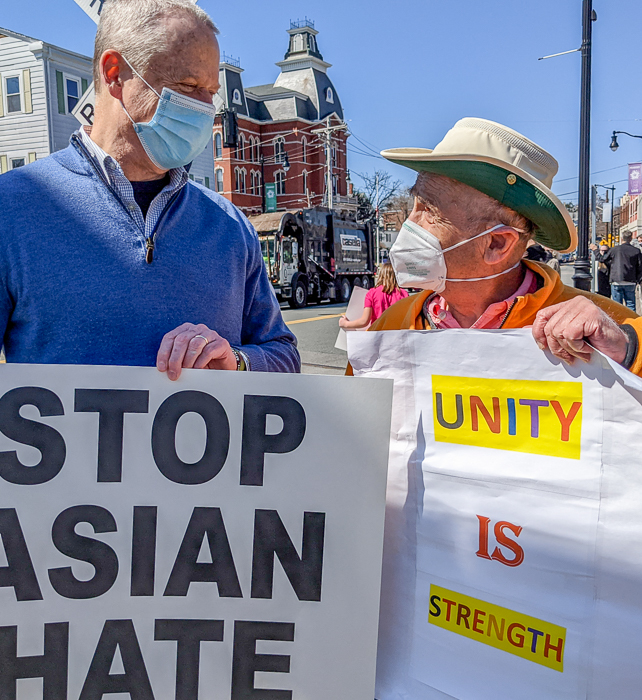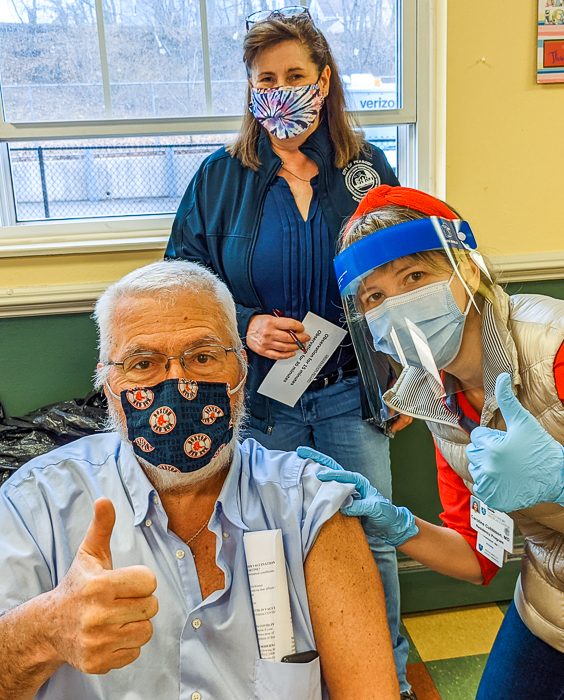Doom or hope?
- Read more about Doom or hope?
- Log in to post comments
Governor Baker, Here's How to Mitigate & Prevent COVID in Housing

Vaccine Day At Peabody Fairweather

- Read more about Vaccine Day At Peabody Fairweather
- Log in to post comments
Adventures With COVID-19 & Vaccination

- Read more about Adventures With COVID-19 & Vaccination
- Log in to post comments
Are We Safe Now?
One unmasked tenant sitting with others in an entrance lobby said,
“Oh, isn't it great that the pandemic is almost over, that’s why we can hang out without masks.”
This conversation took place in the lobby of an apartment building of 112 units in Salem public housing for the elderly and disabled, where at least 9 tenants have current or recent cases of COVID, including one recent COVID death—a rate of 8% infections.
- Read more about Are We Safe Now?
- Log in to post comments
Testimony to Joint Committee on Covid-19
January 5, 2021
To the Honorable Chairs of the Joint Committee on Covid-19 and Emergency Preparedness and Management: Senator Joanne M. Comerford & Representative William Driscoll, Jr.
Dear Senator Comerford and Representative Driscoll,
- Read more about Testimony to Joint Committee on Covid-19
- Log in to post comments
Stop COVID in Elderly Housing
Today, too many people are getting COVID and dying in what should be a safe haven—public and subsidized housing for the elderly and disabled. These tragedies are largely preventable.
We want the legislature to create laws that will guide the Governor and the Department of Public Health to take new steps to reduce the spread of COVID, and better protect citizens. We can prevent COVID from spreading if we assure compliance by enforcing the public health mandates. To address the public health threat we must know where people are infected and dying.
- Read more about Stop COVID in Elderly Housing
- Log in to post comments
Ombuds Agency to Protect Tenants From Bullying
A Bill Establishing an Ombuds Agency Protecting Tenants From Bullying, Mobbing, and Hostile Environment Harassment in Elderly Housing
The bill as filed by Senator Joan Lovely:
https://malegislature.gov/Bills/192/SD1928
Below is the version as developed by the Stop Bullying Coalition
- Read more about Ombuds Agency to Protect Tenants From Bullying
- Log in to post comments
Legislation to Protect Tenants from COVID
Update on our legislative advocacy
Our legislative partners, including Representative Tom Walsh and Senator Joan Lovely, have determined that the first step is to bring our concerns to the newly formed Joint Standing Committee on COVID-19 and Emergency Preparedness and Management. That body will be tasked with oversight of the state’s pandemic response and take on an advisory role for the Legislature. It will also weigh broader issues of disaster preparedness, emergency management and communication.
- Read more about Legislation to Protect Tenants from COVID
- Log in to post comments
For a Safe Community, We Need Laws
The goal of all our efforts is not to create a utopian community where everyone loves each other and there is no strife. No, it is make it possible for people to live together despite their differences and to create a social environment that is, at least, not toxic and harmful.
This is possible through a common understanding of the limits of behavior and having a way for people to resolve differences without resorting to aggression---physical, emotional, bullying, or mobbing.
- Read more about For a Safe Community, We Need Laws
- Log in to post comments
